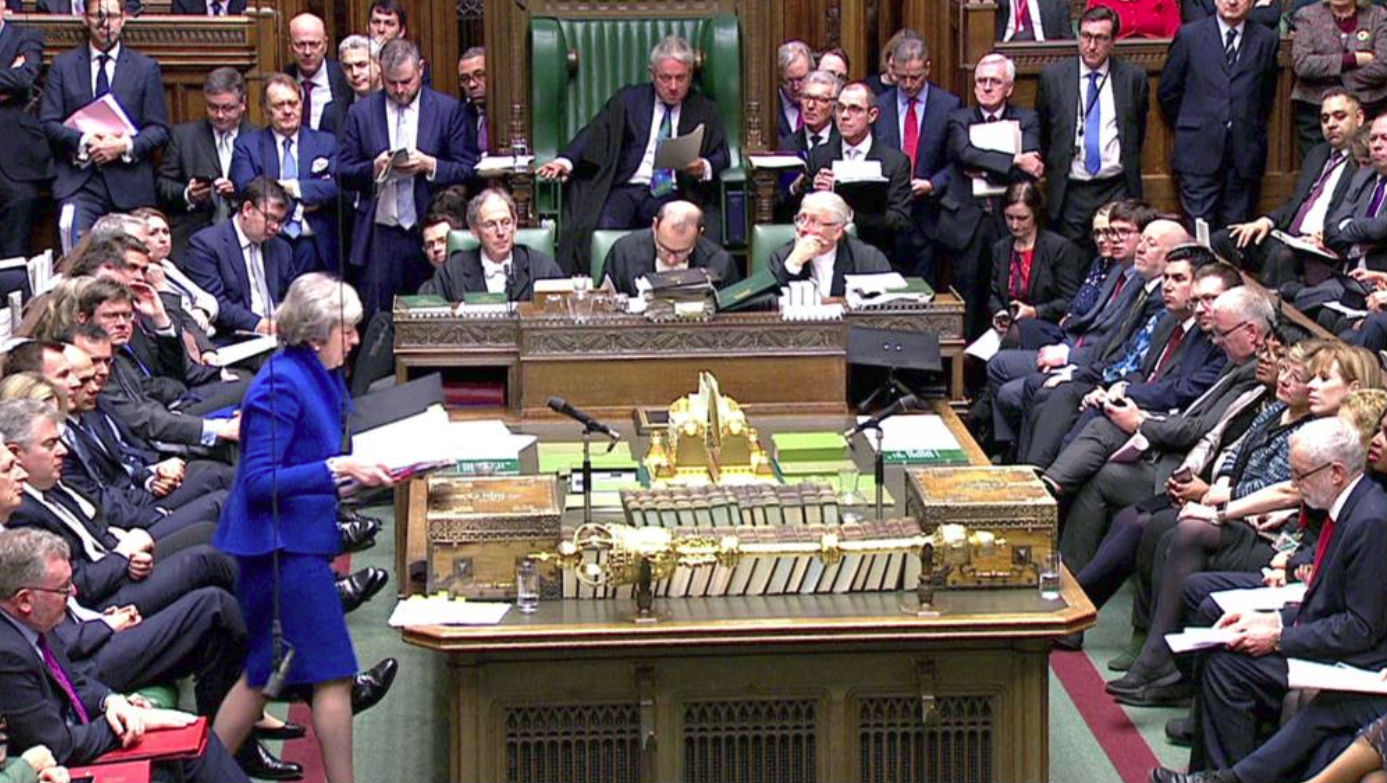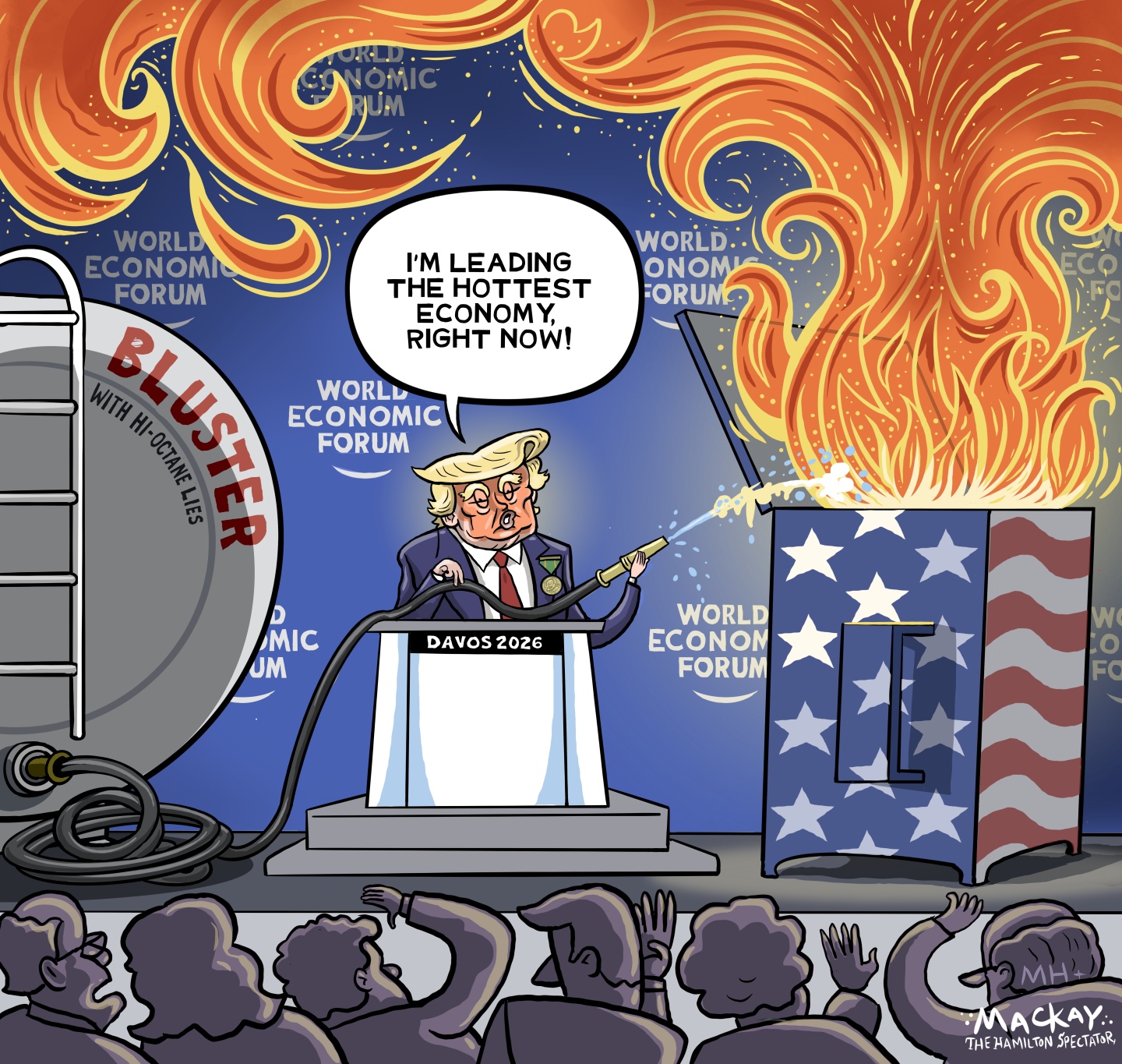Brexit indicative votes: what are MPs voting on tonight?
Prospect of a customs union with EU threatens to split Theresa May’s cabinet

MPs will today have another chance to vote for an alternative to Theresa May’s Brexit deal after rejecting her Withdrawal Agreement for a third time on Friday.
None of the alternative options to the prime minister’s plan gained the support of a majority of the Commons last week, but proposals for a customs union and a confirmatory referendum garnered the most votes.
So what are the options that Speaker John Bercow could choose to put to MPs for the next round of votes, and are any of the proposals likely to be accepted?
The Week
Escape your echo chamber. Get the facts behind the news, plus analysis from multiple perspectives.

Sign up for The Week's Free Newsletters
From our morning news briefing to a weekly Good News Newsletter, get the best of The Week delivered directly to your inbox.
From our morning news briefing to a weekly Good News Newsletter, get the best of The Week delivered directly to your inbox.
Motion A: unilateral right of exit from the backstop
Tory backbenchers, led by John Baron, want the UK to leave the EU on 22 May with the Withdrawal Agreement amended to allow the UK unilaterally to exit the controversial Northern Ireland backstop. This option is unlikely to be selected by the Speaker as it doesn’t have the support of any other parties.
Motion B: no deal in the absence of a withdrawal agreement
Also put forward by Baron and also without cross-party support, the motion calls for a no-deal Brexit on 12 April if no Withdrawal Agreement can be agreed by the Commons.
A free daily email with the biggest news stories of the day – and the best features from TheWeek.com
Motion C: customs union
Submitted by the father of the House, Tory Remainer Kenneth Clark, this amendment came very close to passing last week. But “with the anti-Brexit parties all opposed to it, it is reliant on the very small pool of Labour holdouts and Conservative abstentions to get over the line”, says the New Statesman’s Stephen Bush.
“If this can't pass today then it will be a sign that nothing can get over the line in this Parliament and will increase the chances of an election,” Bush adds.
Motion D: common market 2.0
Proposed by Tory soft-Brexiteer Nick Boles, this option would keep the UK in the single market and customs union. The motion gained far less support than anticipated first time around, but The Independent’s John Rentoul reports that the Scottish National Party (SNP), which previously abstained, will be backing the proposal tonight.
Motion E: confirmatory public vote
The big surprise of the last round of voting was Margaret Beckett’s motion to require a public vote to confirm any Brexit deal passed by Parliament before its ratification. (https://www.theweek.co.uk/76232/brexit-pros-and-cons-of-a-second-eu-referendum)
The plan came within a few votes of a majority last week, and Labour backbencher Peter Kyle will submit the amendment again tonight. “It's difficult to see how it can pass unless the argument made by Philip Lee, a pro-referendum Conservative, that it is the only way to avoid an election, has started to gain ground among his Tory colleagues,” says the New Statesman’s Bush.
Motion F: public vote to prevent no deal
With Kyle’s Motion E gaining ground, it's likely that Bercow will refuse to select this option of a second public vote.
Motion G: parliamentary supremacy
Put forward by SNP MP Joanna Cherry and backed by some Remainer MPs from other parties, the amendment would seek an extension to the Brexit process, and if this is not possible then Parliament will be asked to choose between either no deal or revoking Article 50. The motion “is interesting, and could yet win Labour support - but the numbers aren’t there as yet”, says Politico’s Jack Blanchard.
Motion H: Norway model minus customs union
Proposed by Conservative MP George Eustice – who quit as agriculture minister to fight for Brexit – this motion argues for rejoining the European Free Trade Area at the “earliest opportunity”, and negotiating additional protocols with the EU relating to the Northern Ireland border and the agri-food trade. Unlikely to be selected over Boles’ common market 2.0.
So what is likely to happen?
In the eyes of many ministers, “the Clarke plan is the least soft ‘soft Brexit’ option in town”, says HuffPost’s Paul Waugh.
Indeed, should a majority be found for a customs union, the European Parliament’s Brexit coordinator Guy Verhofstadt said the UK could still leave the EU by 22 May, negating the need for controversial European Parliament elections to be held in the UK.
“What we expect is that a proposal could reach a majority around the customs union and then we are prepared, on the EU side, to renegotiate the declaration and to include that customs union therein,” Verhofstadt told Belgian radio station VRT.
“If that political statement is adjusted, I think a majority can be found in the British House of Commons, because you will get cross-border cooperation between Labour and the Conservatives.”
Labour is backing the idea of a customs union but also wants a say in the EU’s trade policy.
However, one EU official close to the negotiations told The Guardian that the UK would face stiff opposition to anything more than a symbolic consultative role.
“When you consider EU trade deals are mixed agreements, there are the member states’ views, the European commission, and the voice of the European Parliament,” the unnamed official said. “What can you do with a third country? Not much.”
May’s cabinet is also divided over whether the Government should follow Parliament’s lead if a majority is found for a customs union. Ministers including Chris Grayling and Penny Mordaunt “have made it clear they would consider resigning if the prime minister bows to the will of the Commons”, says The Times.
Reports suggest May could bring back her Brexit deal for a final time, depending on the outcome of tonight’s vote.
“Some in the UK parliament believe that if MPs begin to coalesce around a ‘softer’ Brexit in Monday’s votes, it may finally convince Brexiteer holdouts that the PM’s deal now represents the ‘hardest’ break with the EU available,” reports The Irish Times.
-
 Film reviews: ‘The Testament of Ann Lee,’ ’28 Years Later: The Bone Temple,’ and ‘Young Mothers’
Film reviews: ‘The Testament of Ann Lee,’ ’28 Years Later: The Bone Temple,’ and ‘Young Mothers’Feature A full-immersion portrait of the Shakers’ founder, a zombie virus brings out the best and worst in the human survivors, and pregnancy tests the resolve of four Belgian teenagers
-
 Political cartoons for January 25
Political cartoons for January 25Cartoons Sunday's political cartoons include a hot economy, A.I. wisdom, and more
-
 Le Pen back in the dock: the trial that’s shaking France
Le Pen back in the dock: the trial that’s shaking FranceIn the Spotlight Appealing her four-year conviction for embezzlement, the Rassemblement National leader faces an uncertain political future, whatever the result
-
 The high street: Britain’s next political battleground?
The high street: Britain’s next political battleground?In the Spotlight Mass closure of shops and influx of organised crime are fuelling voter anger, and offer an opening for Reform UK
-
 EU-Mercosur mega trade deal: 25 years in the making
EU-Mercosur mega trade deal: 25 years in the makingThe Explainer Despite opposition from France and Ireland among others, the ‘significant’ agreement with the South American bloc is set to finally go ahead
-
 Biggest political break-ups and make-ups of 2025
Biggest political break-ups and make-ups of 2025The Explainer From Trump and Musk to the UK and the EU, Christmas wouldn’t be Christmas without a round-up of the year’s relationship drama
-
 Who is paying for Europe’s €90bn Ukraine loan?
Who is paying for Europe’s €90bn Ukraine loan?Today’s Big Question Kyiv secures crucial funding but the EU ‘blinked’ at the chance to strike a bold blow against Russia
-
 ‘The menu’s other highlights smack of the surreal’
‘The menu’s other highlights smack of the surreal’Instant Opinion Opinion, comment and editorials of the day
-
 Moscow cheers Trump’s new ‘America First’ strategy
Moscow cheers Trump’s new ‘America First’ strategyspeed read The president’s national security strategy seeks ‘strategic stability’ with Russia
-
 Is a Reform-Tory pact becoming more likely?
Is a Reform-Tory pact becoming more likely?Today’s Big Question Nigel Farage’s party is ahead in the polls but still falls well short of a Commons majority, while Conservatives are still losing MPs to Reform
-
 Taking the low road: why the SNP is still standing strong
Taking the low road: why the SNP is still standing strongTalking Point Party is on track for a fifth consecutive victory in May’s Holyrood election, despite controversies and plummeting support